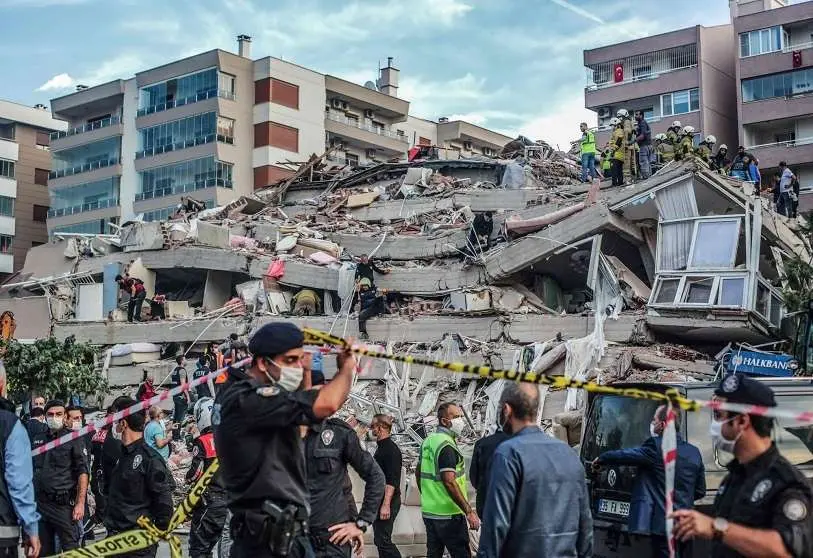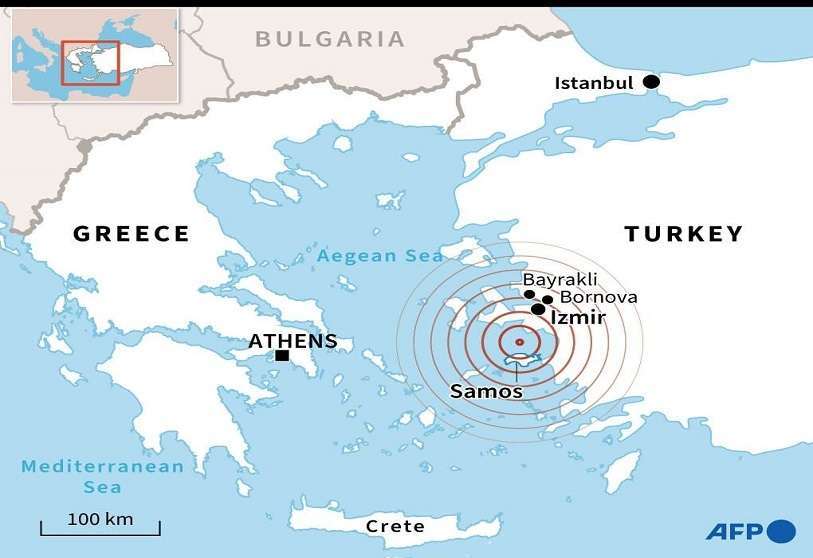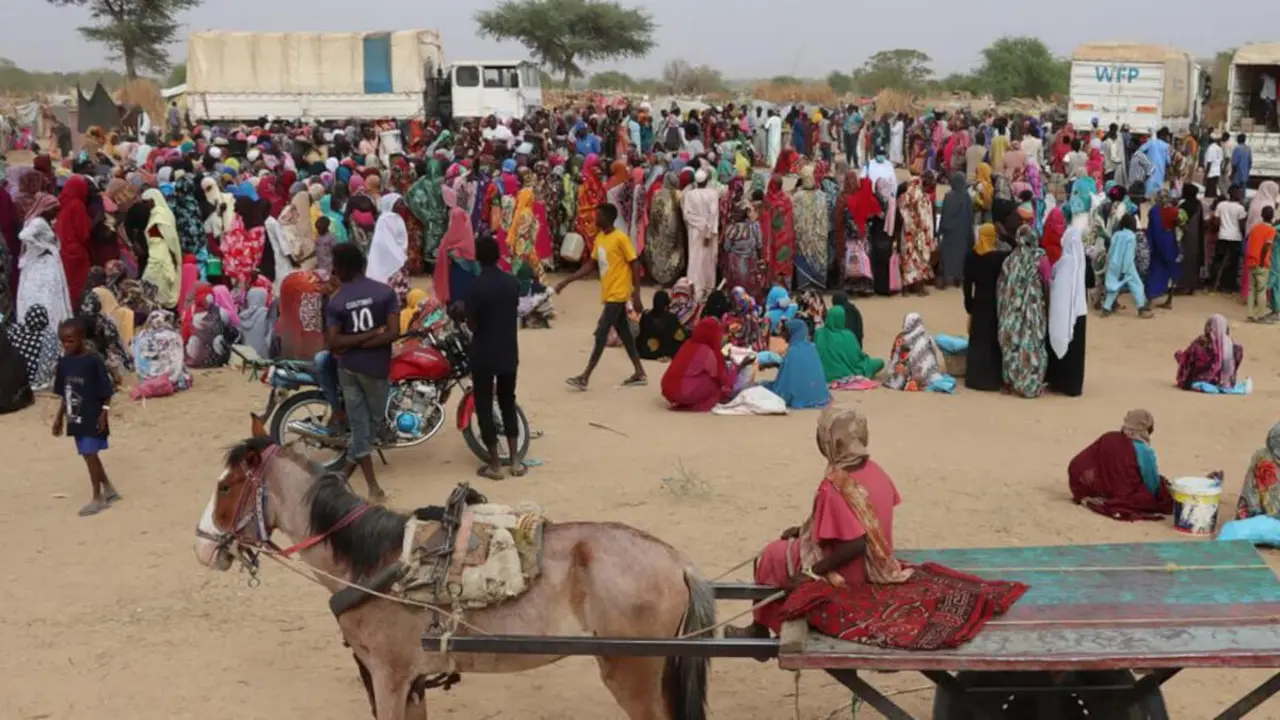An earthquake in the Aegean causes at least 14 deaths, 12 of them in Turkey

The earthquake that struck the Aegean coast on Friday left at least 14 people dead, two of them on the Greek island of Samos and the remaining 12 in the Turkish province of Izmir, where some twenty buildings collapsed.
The number of victims is likely to increase as the teams of AFAD, Turkey's emergency service, assisted by helicopters and unmanned aircraft, continue the search and rescue work of many citizens who are still trapped under the rubble, the service reported on its website.
The 6.8-magnitude earthquake, with its epicentre in the Aegean Sea, occurred at 11.51 GMT and was felt throughout the Aegean and most of Greece, as well as in large areas of western Turkey.
At least 4 blocks of flats have completely collapsed, and AFAD experts are working on a total of 17 buildings in several neighbourhoods of the city of Izmir, the third largest city in Turkey with 4 million inhabitants.
According to the president of Turkey, Recep Tayyip Erdogan, in a public appearance broadcast by NTV, the number of injured people this afternoon amounted to 438, 8 of whom are in intensive care.
Businessman Özgür Aktepe, owner of a construction company, told Efe on the phone that he was in a restaurant when he felt "a jolt and a strange noise", and on his way out he saw a building under construction collapse across the street.
"When I heard about more collapsed buildings, I sent 15 trucks and construction machinery to the affected sites. My engineers, who are involved in the rescue work, tell me that some buildings collapsed as if they were made of sand," he added. According to the builder, the engineers believe "that it is impossible to get people out alive who might be inside.
On the Greek island of Samos, just ten kilometres from the epicentre of the earthquake, two people have been killed and eight injured.
The dead are two teenagers aged 15 and 17, a boy and a girl who were on their way home from school when they were trapped by a wall that collapsed in a narrow street. The children were located because their parents found their mobile phones next to the rubble. Rescue teams found the girl already dead while the young man was taken unconscious in a very serious condition to hospital, where he died.

Of the twelve dead in Turkey, one is a woman who was swept away by a small tsunami caused by the earthquake, the epicentre of which is 17 kilometres from Seferihisari on the Turkish coast.
According to the Turkish press, the authorities of the coastal town of Sigacik in the municipality of Seferihisari explained that the victim, an elderly woman, had left her house in a wheelchair when she felt the earthquake, but was swept away by the turbulent waters that suddenly flooded the streets of the town.
Although no spectacular wave was observed, the water rose about one metre in the streets and washed away many items of furniture and street furniture before dispersing after half an hour.
About a hundred boats from the Sigacik yacht harbour broke their moorings and are now adrift, according to NTV.
However, the greatest damage has occurred in neighbourhoods of the city of Izmir, while the surrounding towns have recorded only minor damage, witnesses told Efe.
"I was crossing the Bay of Izmir and the boat was badly shaken. At the same time, my son called me to tell me that the house had shaken a lot, but then I saw that only some bottles were broken. In Karsiyaka, a district north of the centre, no damage was reported," a neighbour, Mehmet Sahin, told Efe in a telephone conversation. "The worst thing was the traffic after the earthquake: for hours people were trying to leave the city centre," Sahin added.
The governor of Izmir, Yavuz Selim Kösker, asked citizens not to use the car so as not to obstruct the passage of ambulances and rescue vehicles.

A hundred aftershocks were felt after the earthquake, 21 of which exceeded 4 degrees of magnitude, according to AFAD.
The authorities have recommended that people in certain districts of Izmir should not stay in their homes and AFAD has moved 960 tents, 4,500 blankets and more than 3,000 beds to the affected area, as well as mobile kitchens and basic necessities for people who have been left on the streets.
Greek Prime Minister Kyriakos Mitsotakis called Turkish President Recep Tayyip Erdogan to offer his condolences, and the two leaders assured each other of their readiness to send help if needed, Erdogan said in a televised appearance.
Although it has been felt throughout western Turkey, with serious damage to buildings also observed in neighbouring Izmir provinces, the earthquake has not affected Istanbul, located 330 kilometres to the north, although some of the city's residents claim to have felt the tremor.








